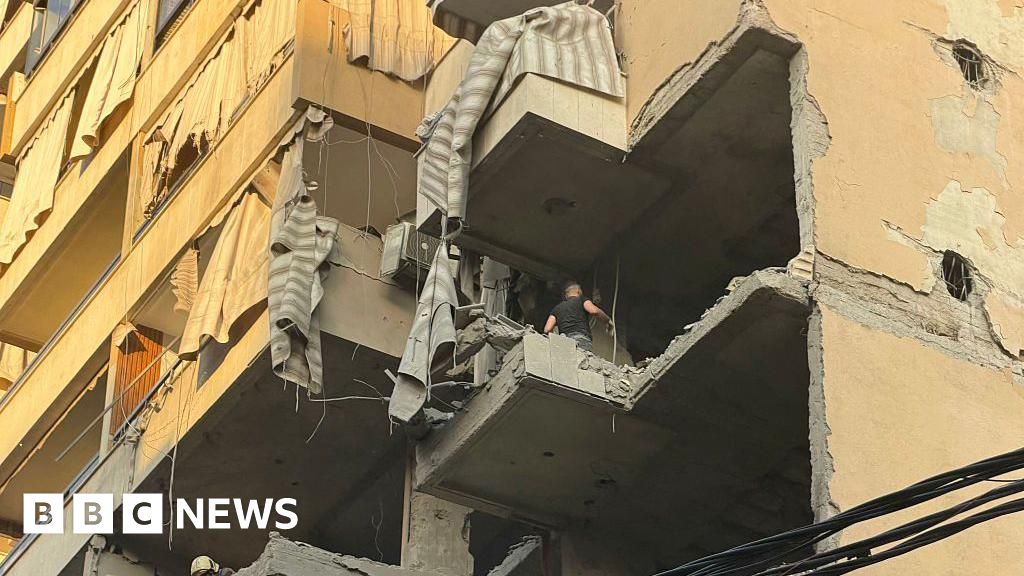Israel Targets Senior Hezbollah Official in Beirut Airstrike, Escalating Tensions Amid Fragile Ceasefire
 Lebanon
Middle East Conflict
Lebanon
Middle East Conflict

Israel conducted its first Beirut strike in months, targeting a senior Hezbollah official in Dahieh, killing five and wounding 28. The attack violates a ceasefi
Israeli Strike Hits Beirut, Targets Senior Hezbollah Figure Amid Heightened Tensions
An Israeli airstrike recently impacted the southern suburbs of Beirut, Lebanon, marking the first such attack on the capital in several months. The primary target, according to the office of Israeli Prime Minister Benjamin Netanyahu, was a senior Hezbollah official, specifically identified as the militant group's chief of staff. While Israeli media reports initially named the individual as Ali Tabtai, describing him as Hezbollah's number two, the group itself confirmed that a senior commander was targeted without disclosing their identity.
The strike, which hit an apartment building in Beirut's densely populated Dahieh district, resulted in significant casualties. Lebanon's health ministry reported at least five fatalities and 28 injuries, underscoring the severity of the operation in a civilian area.
Ceasefire Violation and Escalation Concerns
This latest military action occurs despite a fragile ceasefire agreement, brokered by the US and France, which came into effect last November. The strike has significantly intensified concerns about a potential wider escalation of conflict in the already volatile region. Israeli officials justify their actions by alleging that Hezbollah, an Iran-backed Shia Muslim group, has been actively attempting to rebuild its military capabilities. These allegations include claims of weapon smuggling into Lebanon and an increase in the production of explosive drones, viewed as alternatives to traditional rockets and missiles. Such activities, if true, contribute to growing international apprehension regarding an escalation of hostilities.
Lebanon's Appeals and Hezbollah's Stance
In response to the escalating situation, Lebanese President Joseph Aoun has urgently appealed to the international community. He called for immediate pressure on Israel to cease its attacks and fully withdraw from the five locations it continues to occupy in southern Lebanon. Aoun firmly stated that Israel's actions constitute a direct violation of the agreement that ended a 13-month conflict between the two entities.
While the Lebanese government has publicly committed to disarming Hezbollah, the militant group has consistently rejected discussions about the future of its weaponry. Hezbollah maintains that such talks cannot proceed until Israel halts its assaults, fully retreats from Lebanese territory, and releases all Lebanese prisoners.
International Pressure and Historical Context
A Western diplomatic official, speaking anonymously to the BBC, indicated that Lebanese authorities are under increasing pressure from the Trump administration. Washington is reportedly growing impatient with what it perceives as slow progress in countering Hezbollah, which is officially designated a terrorist organization by countries including the US and the UK.
The current cycle of escalation between Israel and Hezbollah is rooted in the aftermath of the October 7, 2023 Hamas attacks. Hezbollah initiated rocket fire on Israeli positions on October 8, declaring its actions were in solidarity with Palestinians in Gaza. Previous Israeli operations in Lebanon have had severe humanitarian consequences; Lebanese authorities report approximately 4,000 deaths, including many civilians, and the displacement of over 1.2 million residents. Conversely, Israeli authorities have reported the loss of more than 80 of its soldiers and 47 of its civilians in these hostilities.
Targeted Individual: Ali Tabtai
The alleged target of the latest strike, Ali Tabtai, has a notable history with US authorities. He has been under US sanctions since 2016 and was formally designated a terrorist by the US government. A substantial reward of $5 million (£3.8 million) is currently offered for information that leads to his apprehension.